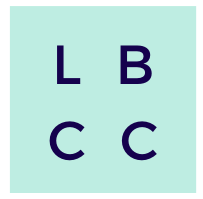Don’t Quiet Quit
Resign to redesign
When I first heard the term “quiet quitting,” scenes from the movie Office Space started playing in my head. Upon further research, I learned that according to an NPR article, “quiet quitting is not outright quitting your job. It is quitting the idea of going above and beyond when you are not paid to go above and beyond. It’s the idea that you and your worth are not defined by your labor.”
I have mixed feelings about quiet quitting. Having a job that offers an appropriate work-life balance is something I’m totally down with.  Completely ignoring responsibilities (like Peter Gibbons) or doing the bare minimum is a lazy way to deal with a job you don’t like. I don’t like being lazy, nor do I think it is a useful career management strategy.
Completely ignoring responsibilities (like Peter Gibbons) or doing the bare minimum is a lazy way to deal with a job you don’t like. I don’t like being lazy, nor do I think it is a useful career management strategy.
Your career should add value to your life, not take away from it. If you cannot find the work-life balance you are looking for in your current role, then you should just straight up quit and find a new job because quiet quitting is not going to bring you the fulfillment you should get from your career.
If quiet quitting is providing you with the boundaries and fulfillment you have been looking for, amazing! Keep it up. If not, I’d like to recommend that you stop quiet quitting and resign to redesign instead. While managing the tasks that you are responsible for, start trying to find things to do that are a little outside your realm of responsibilities but are directly related to your next step. These “new responsibilities” should involve tasks that will help you add necessary skills to your resume AND bring your current employer closer to their goals. Let me give you a few examples.
Let’s say you are currently working in sales, but you are interested in finding a role as a recruiter. Instead of viewing your sales pitches as offering meaningless products to potential customers, try to reframe your thinking about your work. View your pitches as an opportunity to recruit customers to your company. Really drill down and think about how your products could be a good fit for your potential customer’s needs. Begin to sharpen the skills it takes to assess someone’s needs and find something that will fill that need. Or start doing your own customer research and begin reaching out to new leads who might be more interested in your products than the leads you were currently working with. These skills are transferable from sales to recruiting.
and find something that will fill that need. Or start doing your own customer research and begin reaching out to new leads who might be more interested in your products than the leads you were currently working with. These skills are transferable from sales to recruiting.
Here’s another example. Imagine you are working as a middle school math teacher and you have been cussed out one too many times by a clueless parent. You are also completely fed up with the administration’s asinine ideas and teacher politics. You NEED a change and you have been thinking about making a pivot to something in research or data analytics. Instead of flying your class on autopilot (which won’t help your students…we’ve all had those teachers), create a hypothesis about your students and give them assignments that will allow them to work towards a goal. This assignment will allow you to track and analyze their progress based on different variables. Making hypotheses, tracking progress, interpreting data, and documenting changes will not only help your students, but it will also give you skills to add to your resume so you can finally peace out!
These are just a couple of examples, and everyone who is unhappy in their current work environment has different reasons for wanting to leave and different ideas about what their next step is. What could work for you? What is one thing you could change about your current work situation that will bring you closer to resigning? Choosing to develop  new skills in a way that will prepare you for your next step while also helping your current employer is a very professional way to manage your career. Only doing the bare minimum is not going to leave your current employer with a good impression of you and it certainly won’t help you evolve as a professional.
new skills in a way that will prepare you for your next step while also helping your current employer is a very professional way to manage your career. Only doing the bare minimum is not going to leave your current employer with a good impression of you and it certainly won’t help you evolve as a professional.
If you need help redesigning your current role so it sets you up to take your next step, I’d love to hear from you! Click here to schedule a consultation. You can also feel free to check out my Find Your Next Job Course for more job search tips. If you enjoyed this post, scroll down to subscribe and my blog will be sent straight to your inbox 😊!

